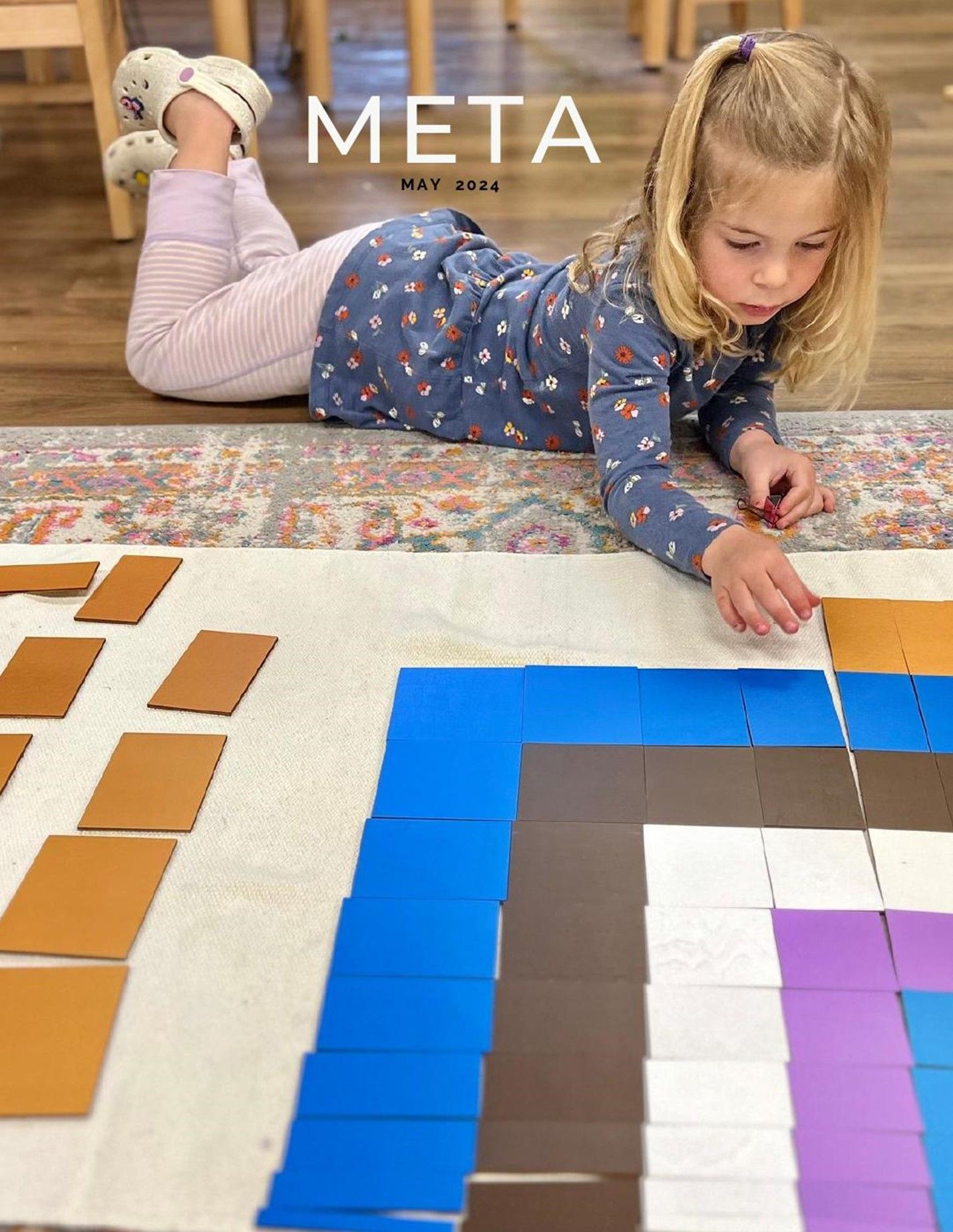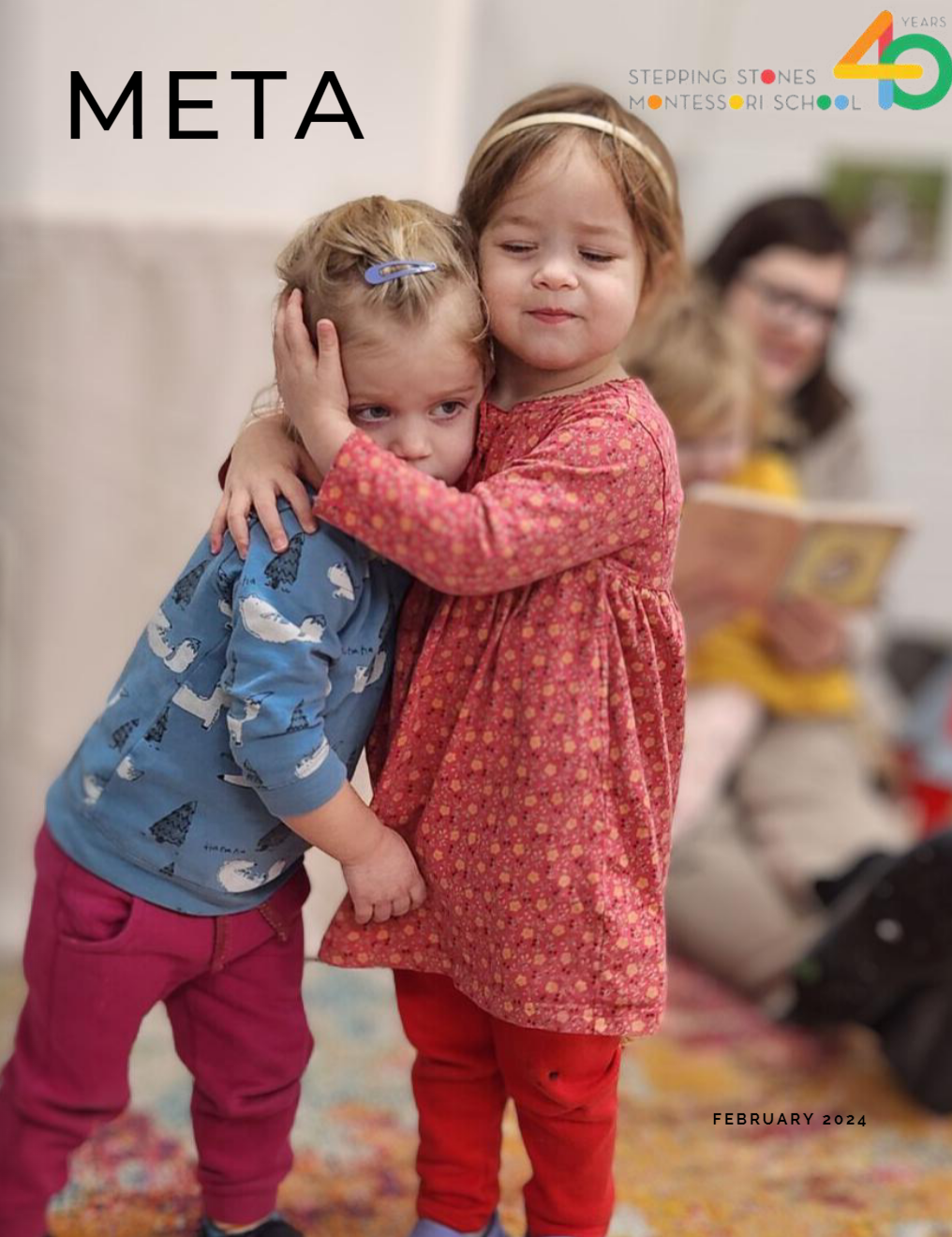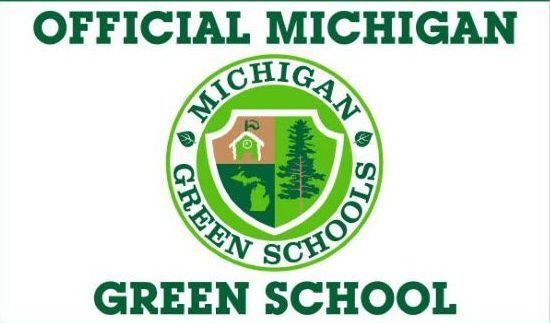Just tell me the right answer
One dark winter night, I leaned over my standing desk in my studio. I was trying to write a blog post on the Montessori Great Lessons. On my desk was the glass bell jar, home of my green succulent, the black metal cup of pens and pencils, and a white 8 ½ x 11 piece of printer paper. The paper was blank except for the marks where I’d scratched out false starts of sentences.
Last year I’d gone to the Parent Coffee on the Great Lessons. I’d been frazzled when I walked in the door. We’d been late for school again, I’d taken my seat as I was still checking my phone. Truth be told, I was only there because I needed parent service hours.
And then the guide dimmed the lights and began telling the series of stories that form the spine of the Elementary curriculum. “Billions of years ago…”
Story! Drama! I was hooked. That day I learned how the stories of the Great Lessons teach kids the connection of all academic subjects to one another--math overlays with geography overlays with science and language. And it doesn’t stop with academics. Montessori kids are encouraged to travel through time. They can see what happened in the past and they learn to connect it to the now and the future. This is the Montessori idea of cosmic education. It’s all about seeing the whole.
When I was in elementary school I learned through separation. There was the science book, the math book, the reading book. In later years, the dreaded sex education book. Did I even study geography in elementary school? Maybe a map on the wall. I certainly wasn’t trained to take in the whole.
And I admit, when I started to write this blog post nearly a year after that parent coffee--even after reading articles on the Great Lessons and talking to the Montessori guides--I couldn’t do much more than describe the Great Lessons in the abstract. I struggled to articulate how the Great Lessons translated to my kids’ lives outside their beautiful, peaceful Montessori classrooms.
Every word I wrote sounded worn and forced to my ears.
When I write I’m often terribly, terribly blocked. Because I’m always asking myself, Is this right? Is it good? While trying to write about the power of storytelling of the Great Lessons, my own story was stuck in a tight little box. I loved the Great Lessons but I needed a Great Lesson of my own to connect it to my life.
Eventually that night, hidebound by self-judgement, I lay my head on my desk in despair and grief.
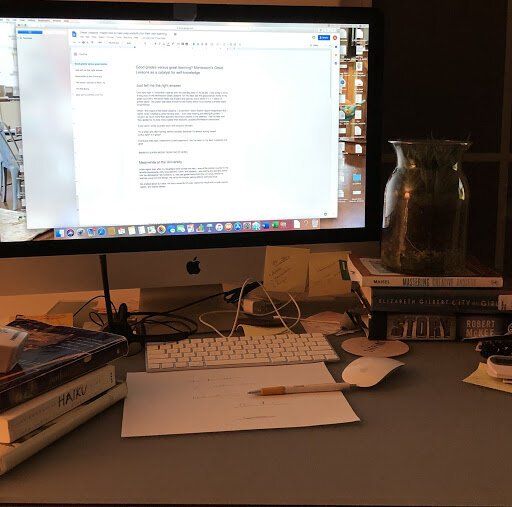
The paper was blank except for the marks where I’d scratched out false starts of sentences.
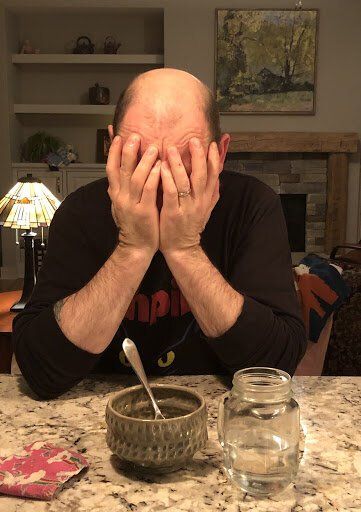
Iz shook his head sadly.
Meanwhile at the University...
A few nights later after my daughters were tucked into bed, I was at the kitchen counter in my favorite sweatpants, ratty long-sleeved T-shirt, and slippers. I was putting the last dirty bowls into the dishwasher. My husband, Iz, had just gotten home from the university where he teaches visual art and design. He sat at the counter eating leftover split pea soup.
We chatted about our days. He took a spoonful of soup, wiped his mouth with a cloth unicorn napkin, and sighed deeply.
“What is it with students these days?” he said.
“Oh no,” I wiped celery bits from the counter. “Another cell phone run in? I thought you’d banned them.”
“Worse,” he said. Iz told me about a talented student in his design class. That semester she’d been working on a project that had the potential to be really good. Over the weeks she’d check in with him and ask if he liked her design. “I kept telling her that the focus of her work should be mastering the skills and interacting with the material, not about what I like,” he said.
But that afternoon Iz had told her he liked the piece. To his shock and dismay as soon as he said this, she put her work on the drying rack and walked out of class early.
“No way,” I said. “Just walked out?”
“Just walked out. She said she was done.”
“Was she really done?” I asked him.
He shook his head sadly. “She was just getting started. So many students want a fast track to an A. They don’t care about learning.”
The Big Bang
The next night I was back at my desk trying to write my blog. I wanted to do justice to how our kids experience the Great Lessons with the magic of the dark classroom, the single glowing candle, how the guide pops the black balloon filled with gold and silver glitter at the exact moment she says “blast.” More than anything I wanted to get on the page the kids’ hunger to learn as they choose follow up work from the classroom shelves, and how this work prompts them to ask the next question and the next.
As I pored over my readings and my notes from talks with guides, I realized I couldn’t write about the Great Lessons in the way I’d intended which was to conveniently find the right answer and tell you about it in a way that hopefully made me sound smart and witty. Like students today do so often, I’d wanted to quickest way to the A.
When I stepped back from the desk and from my frantic right-answer hunt, I was left with my own shortcomings and strengths as a learning human being. I was left with responsibility for my own learning. A deep part of me sensed that for me to truly understand the Great Lessons what I needed next was not to write a blog post on what I already knew. Not even to read the next article or talk to the guides again.
What I needed was the flicker of a candle, the gentle voice of a human being--through the ancient call to action of storytelling-- inviting me into a world of questions, wonder, and imagination. What I needed was to retake last year’s Great Lessons Parent Coffee.
Lucky for me there is a Parent Coffee on this very topic this Thursday, January 16th. Sign up here Sign up here for the Parent Coffee
While I am still practicing this skill of self-direction as an adult, our Montessori kids are learning to seek out what they need for their own learning. Within educational guidelines, our kids have much control over their own curriculum. They take topics as far as they want to at the pace that they want to. They are honing their self-knowledge and self-confidence; understanding their strengths and weaknesses. They are learning to ask the next question and the next. (Hint: “How can I Fast-Track to the A?” is not one of them. “What will help me learn best?” Yes. Oh, yes).
In Elementary these skills all start all with the Great Lessons.
Let’s learn together. I’ll see you there.

Parent Coffee
Elementary Storytelling: The Five Great Lessons
Thursday, January 16 8:30-9:30 am
Elementary Building Cafeteria


